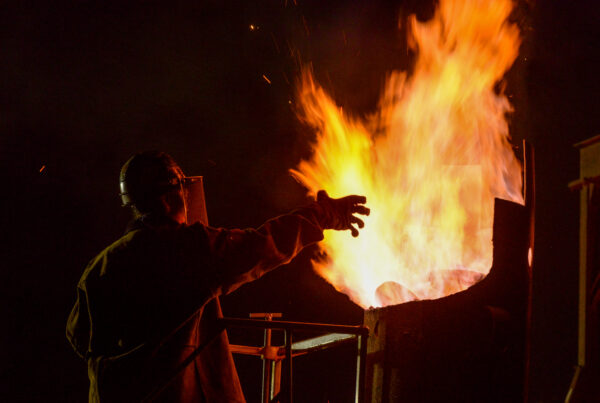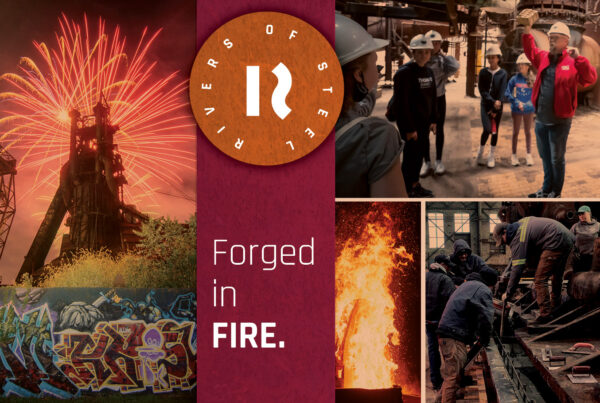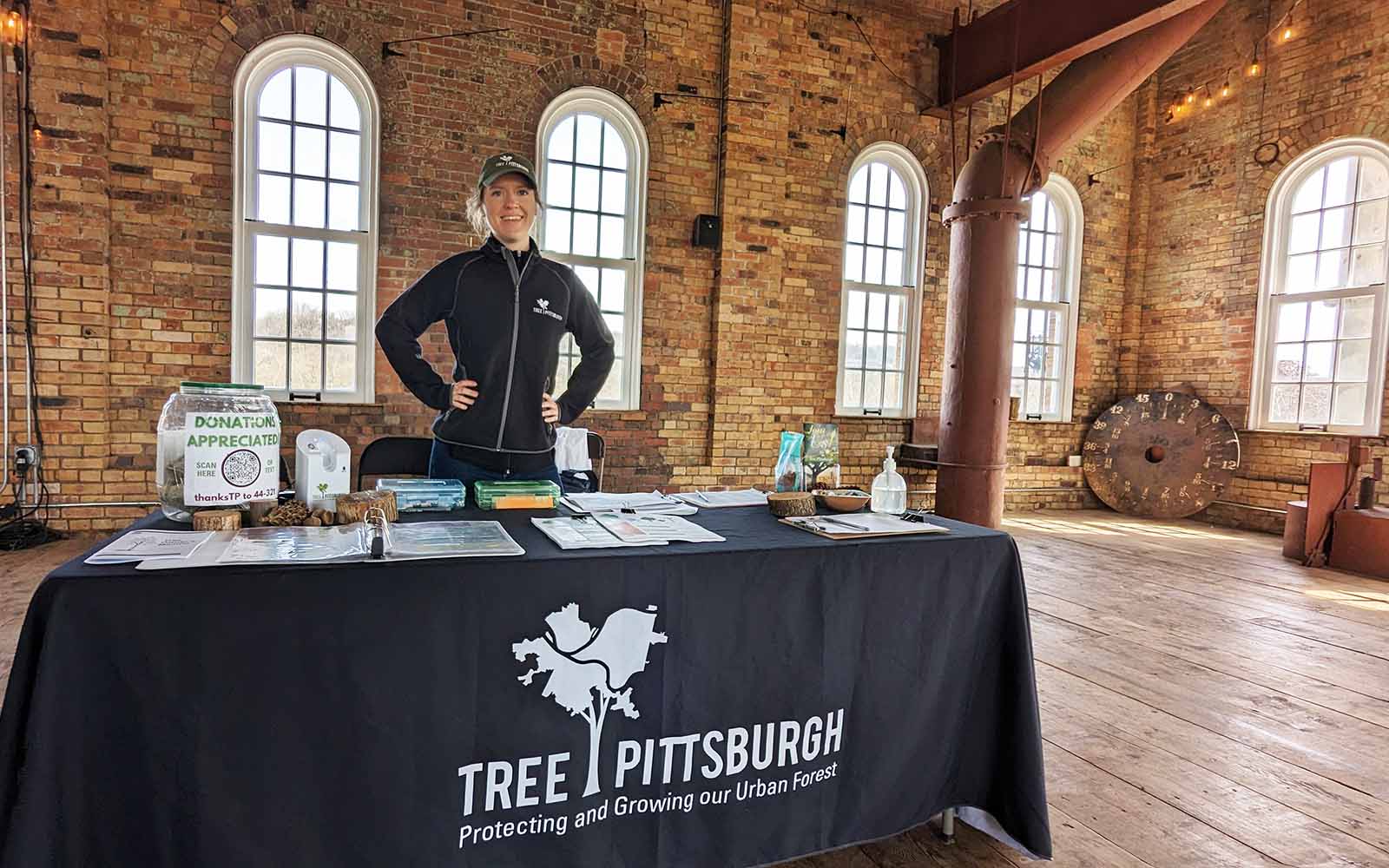
Loralyn Fabian, program manager for the tree adoption event at the Pump House on April 1, 2023.
Community Spotlight—Tree Pittsburgh
The Community Spotlight series features the efforts of Rivers of Steel’s partner organizations, along with collaborative partnerships, that reflect the diversity and vibrancy of the communities within the Rivers of Steel National Heritage Area.
By Carly V. McCoy
Mon Valley Tree Adoption Event
“Fun, high energy, and well-received by our partners and the public!” is how Loralyn Fabian described a typical tree adoption in advance of last Saturday’s pickup event at the Pump House in Munhall. As the Tree Adoption Program Manager for Tree Pittsburgh, Loralyn appreciates the enthusiasm of the Allegheny County residents who register to adopt free trees—and she and the Tree Pittsburgh team have a system in place for these giveaways to run smoothly.
In fact, the process starts months in advance, when Tree Pittsburgh reaches out to community partners to host the tree adoption event and to help inform locals about the opportunity to increase the region’s tree canopy, a role that Rivers of Steel was happy to assist with for this event.
Next up is preregistration: interested residents can sign up in advance for up to two trees from a varied selection of offerings. Invariably, these events sell out. For Saturday’s two-hour session, there were 150 trees and shrubs on hand and three additional Tree Pittsburgh staffers to support Loralyn, who checked in each registered person, shared information about planting and care, and handed out vouchers for their selected trees. Those vouchers were then handed over to Mel and Cedar, who accepted them in exchange for the saplings and then helped folks who needed assistance to get the trees into their cars. Maura O’Neill, the organization’s director of development and communications, was also on hand to help with check-in, tree distribution, and tree education as needed.
After an initial rush, the pace steadied, and Loralyn acknowledged that it did not end up being as fast-paced as it could have been. The weather cooperated, too; the high winds and rains held off until just after the event ended.
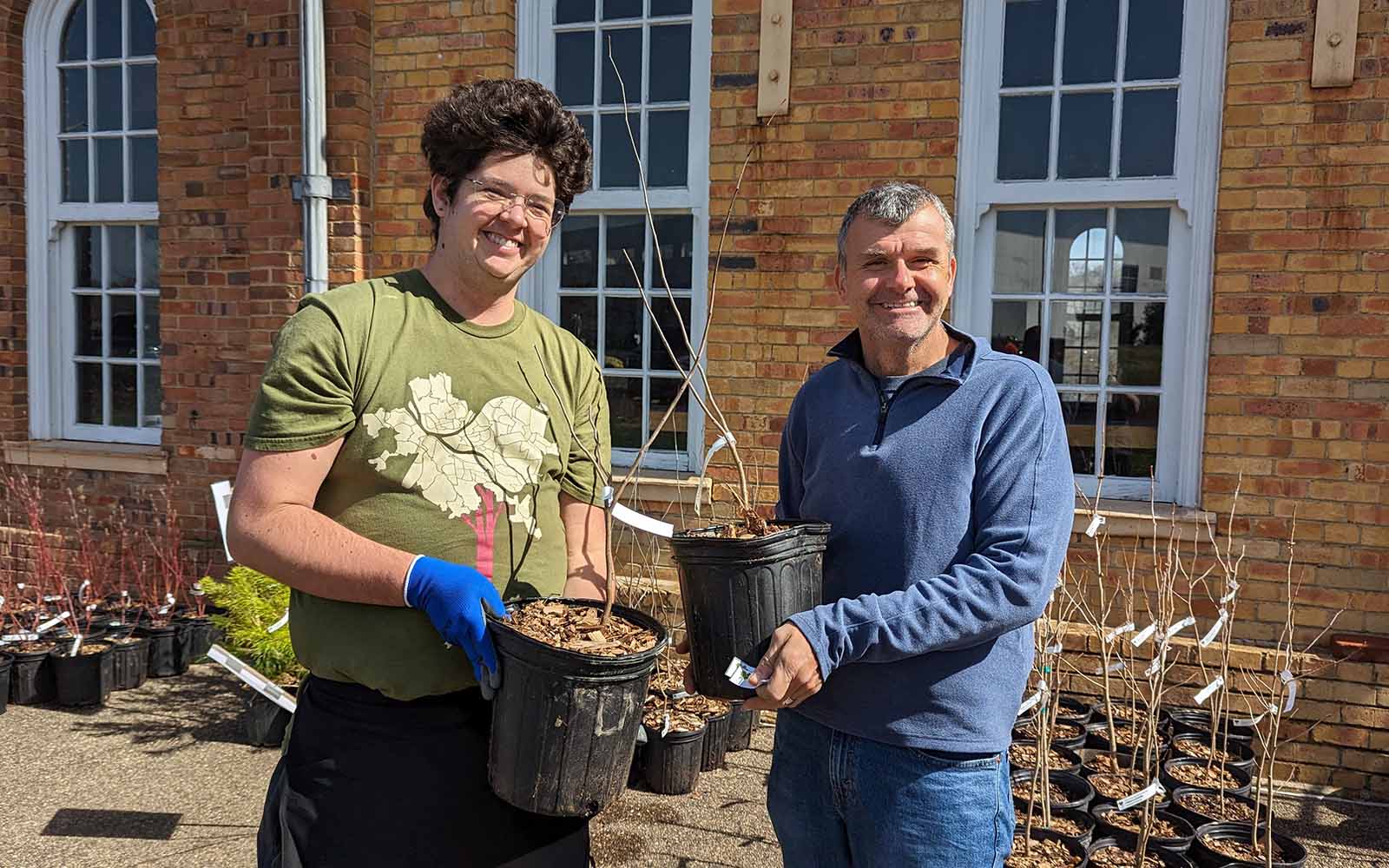
Sean Mooney of Braddock picked up two redbuds for his yard and was assisted by Cedar.
Throughout the morning, several folks stopped by to see if there were any extra trees. At the end of these events, there usually are a number of trees that remain unclaimed, which creates an opportunity for those who missed out on preregistration. Other folks sought an additional tree or two beyond their two initial trees. Ten minutes before the official end time, these hopefuls were instructed to queue in a line, and then promptly at 1:00 p.m., the tree adopters began to thin out what was left of the supply. Fifteen minutes later, only a few American sycamores remained, along with a bur oak or two. By all standards, it was a successful event.
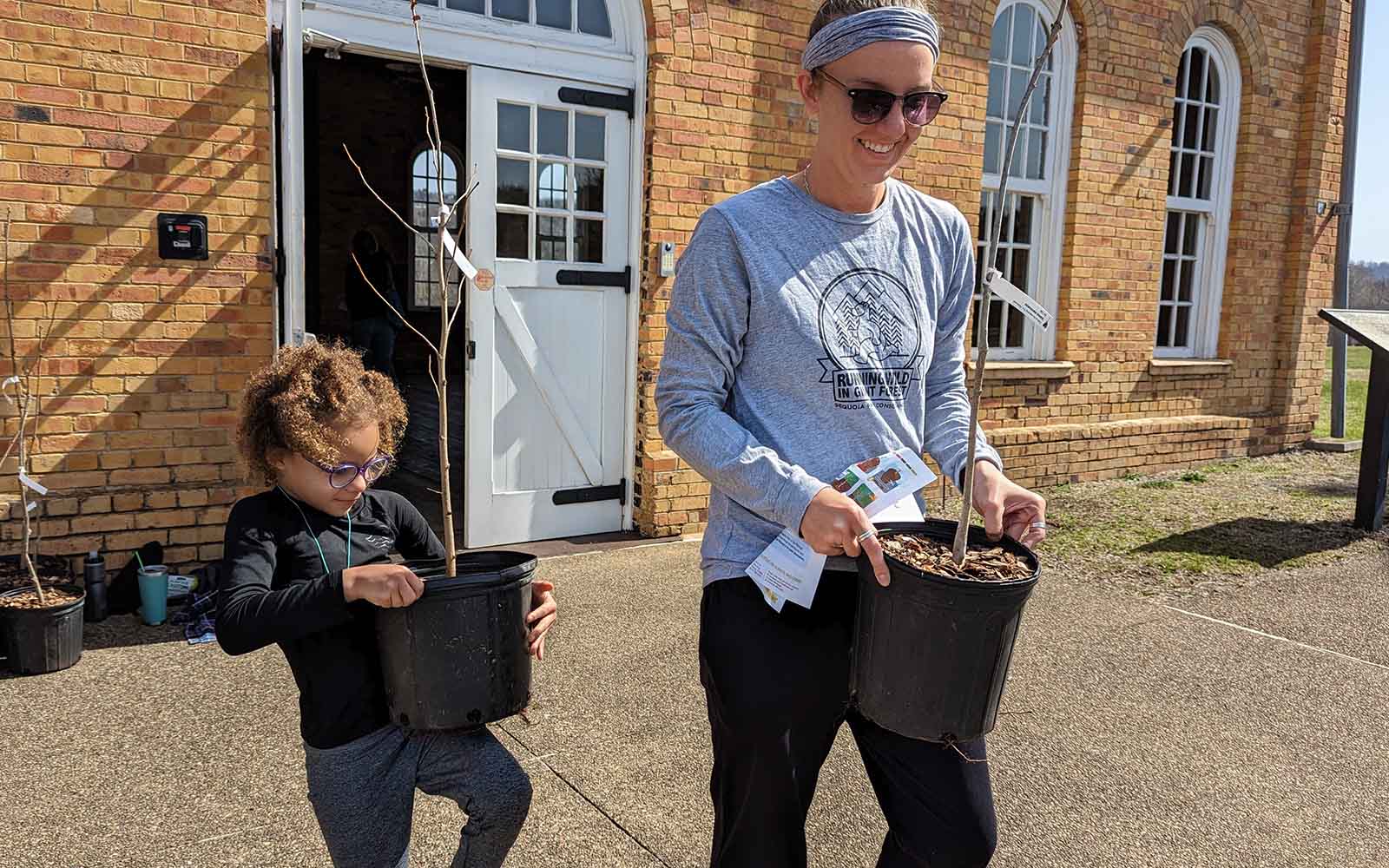
Bethany Fullwood of Lincoln Place brought along some help to assist with carrying their American sycamore and bur oak back to the car.
The Tree Adoption Program
Tree Pittsburgh’s tree adoption program has grown over the years. The first time they offered trees to the public, it was a singular event in a large park and open to residents from across Allegheny County. Since then, data on tree canopy loss has helped Loralyn and other staff to identify the particular spaces within the county most in need of tree cover.
“One of the things we learned from the data is that residential areas are currently experiencing the most tree canopy loss,” said Loralyn Fabian. She went on to explain the variety of reasons that are currently contributing to situation, from pests and diseases or improper pruning to the life cycle of trees in established communities and the choice to remove large trees for fear of them falling on homes. The latter is a concern that is increasingly valid in an era of more frequent high-wind events and microbursts.
This spring Tree Pittsburgh is hosting seven events throughout the county as part of the tree adoption program. Like the Mon River Valley event on Saturday, the remaining dates are sold out. However, interested residents in those communities can stop by at the end to pick up the trees that go unclaimed. Another option is to check back in the fall; adoption events are timed for spring and fall to go with the planting seasons.
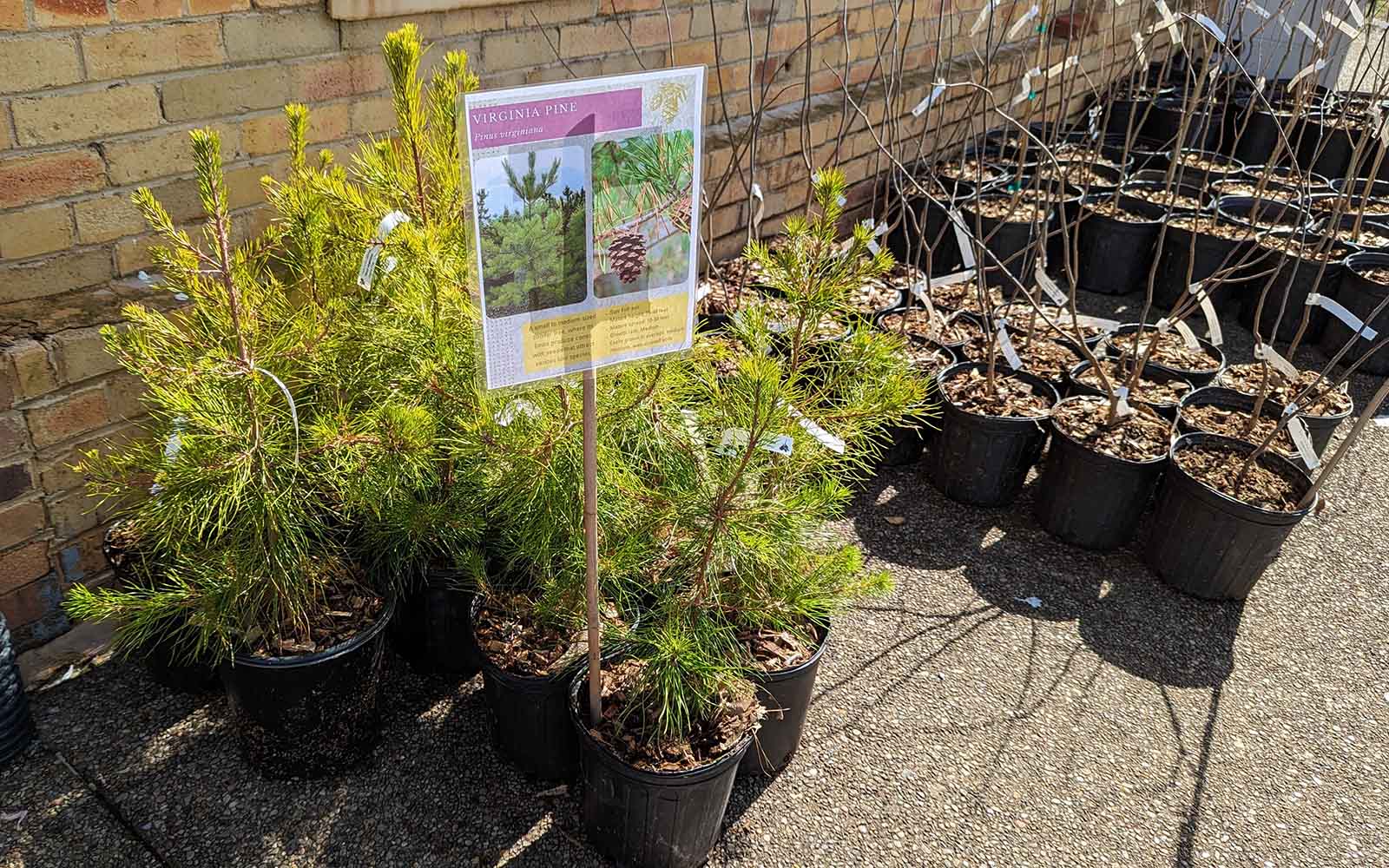
Virginia pines were among the trees offered last Saturday. They require full sun and mature to a height of 15 to 40 feet.
The Selection of Trees
Like the communities that were targeted to receive tree adoption events, the selection of trees is tailored to fit the needs of the community as well. While large trees like the American sycamore and the bur oak were offered for residents who have enough space to accommodate them, other trees including Allegheny serviceberry, Sweetbay magnolias, and Virginia pines offered more moderately sized options. The offerings also vary by location for each event.
“We recognized the need for medium and smaller trees within the diverse mix of tree species, like the Eastern redbuds and the Red osier dogwood,” said Loralyn. “The shrubs and smaller trees provide an understory to the canopy.”
Loralyn went on to explain that the selection of trees also vary by sun and soil needs, but that the organization is careful to avoid overly complicated language when describing the tree care to make the process more accessible to residents. Instead, they rely on water quality terms, like soil moisture and drainage needs, and by offering trees that are resilient and hardy. Additionally, they offer planting education via information sheets and online videos.
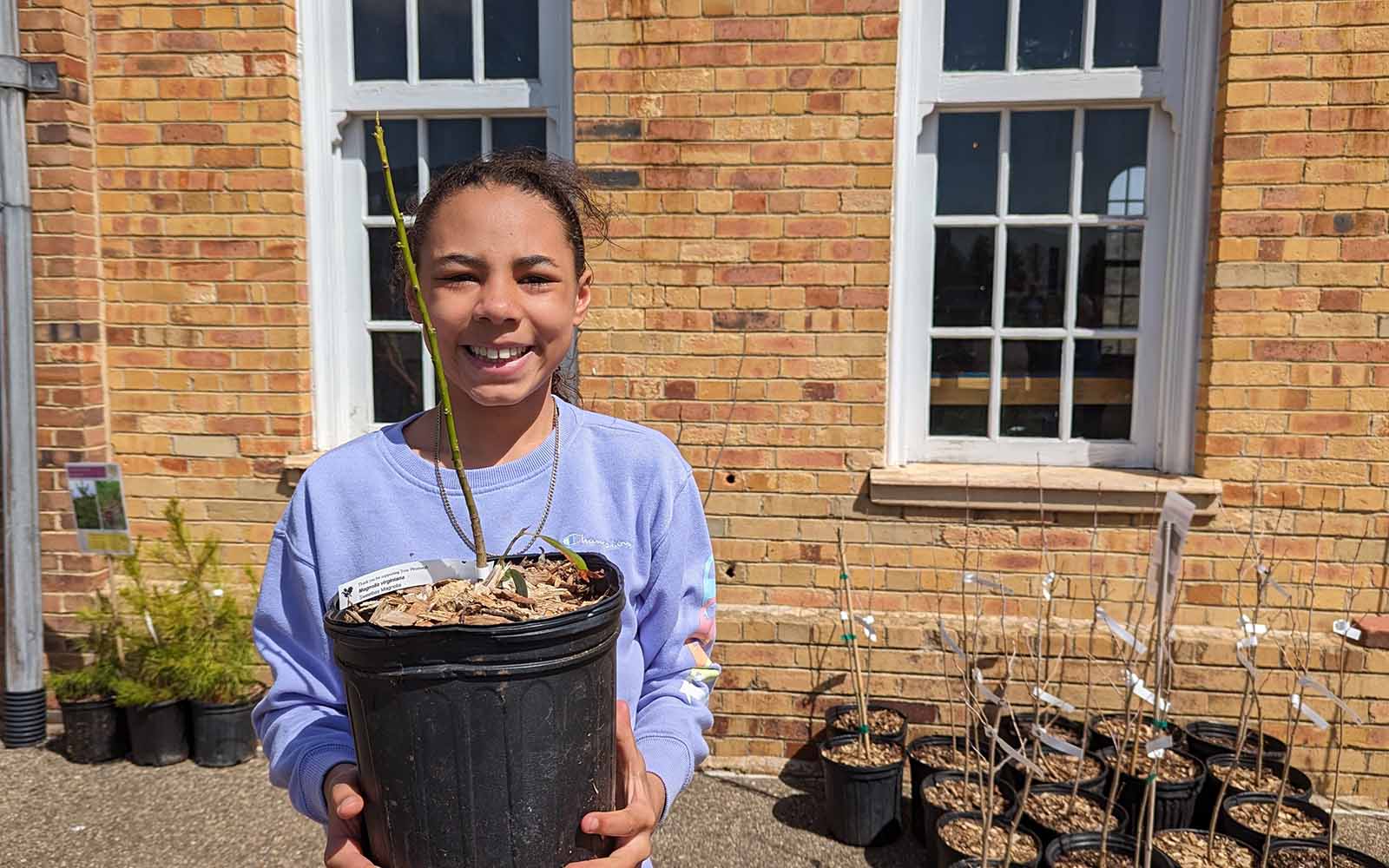
Kenya of East Pittsburgh carried out her family’s Sweetbay magnolia.
Sourcing the Trees
Each of the thousand-plus trees that are scheduled to be given away and planted this spring were grown at Tree Pittsburgh’s Heritage Nursery, a nonprofit wholesale nursery specializing in native plants grown from seed for forest restoration. Currently the nursery has more than 14,000 seedlings, all grown from seeds of mother trees. These locally harvested seeds come from trees that have already proven to be hardy in our local climate and resilient to modern conditions, thus the heritage descriptor.
In addition to supporting the tree adoption program, the nursery provides trees for Tree Pittsburgh’s other initiatives, including its ReLeaf Neighborhoods program and its TreeVitalize Pittsburgh program. Whereas the tree adoption program targets individuals, these other efforts happen in partnership with communities, parks, and local governments.
The Heritage Nursery also works with professionals, from local environmental groups, contractors, and designers to individuals to provide locally adapted trees for planting projects and supply trees at the wholesale level.
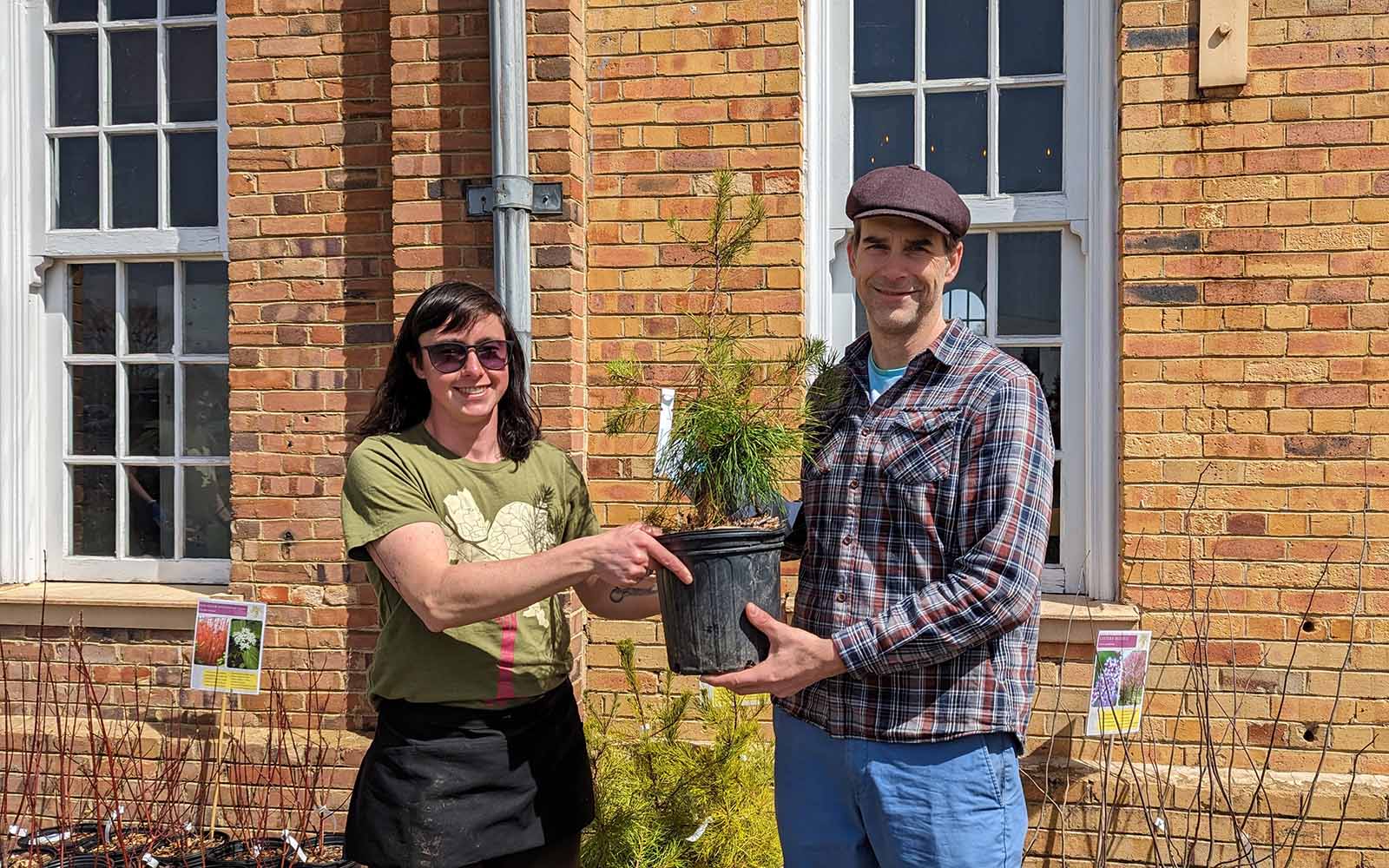
Mr. Kane of Munhall, assisted here by Mel, found out about the event through his borough’s Facebook page.
Supporting Tree Pittsburgh
Throughout the event on Saturday, people added to the donation jar on the check-in table, and the staff warmly thanked them. If you are looking to support these efforts, too, there are several ways to give beyond donations, including by volunteering or purchasing merchandise.
For individuals seeking to support Tree Pittsburgh through the purchase of trees, there will be an opportunity to shop at Phipps May Market, where trees from the nursery will be available to the public.
If you’d like to know more about community projects supported by Rivers of Steel, check out other stories in the Community Spotlight series.

